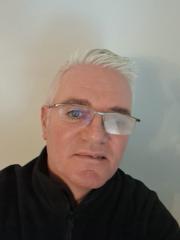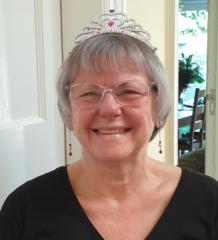Activity
Mon
Wed
Fri
Sun
Mar
Apr
May
Jun
Jul
Aug
Sep
Oct
Nov
Dec
Jan
Feb
What is this?
Less
More
Memberships
Stroke-Proof
46 members • Free
49 contributions to Stroke-Proof
Monthly Check In
Good morning. I can't believe it's already the first of the month! We have our monthly check in at 6pm today where we can discuss our goals for the month. Instead of the weekly challenge this is an opportunity to think about what changes you're going to make over this month. I'd suggest picking one area to measure or improve from the list below: Blood Pressure Cholesterol Blood Sugar Exercise Diet Smoking Alcohol Stress Sleep Obesity Set yourself a goal in this area and make it SMART (Specific, Measurable, Achievable, Relevant and Time-bound). . Then right down your strategy and tactics to achieve it. For example, for me I want to get my cholesterol down. I checked it last week and it was still too high (LDL of 3.6) despite having reduced saturated fats and increasing exercise. Therefore for me: My SMART goal is to: Reduce my LDL cholesterol to <1.8 over the next 3 months as I believe it will significantly reduce my stroke, heart attack and dementia risk. My strategy is to use Statins. My tactics (next actions) are: 1. Contact a doctor in longevity medicine to prescribe statins for me (not a good idea to self prescribe) 2. Ensure I take them daily by using a pill box with the days of the week on it. 3. After 6 weeks arrange for repeat blood tests. 4. Repeat the above steps at an adjusted dose until I hit my target LDL of <1.8. I think it will take 1 dose adjustment to get there so I'm allowing myself 3 months to achieve the target. Write your plans for the month in the comments or join us at 6pm to talk them through. And if you have one bring your blood pressure cuff too! See you later!
Re: Presentations today
Just wanted to thank the three of you for presenting today, absoluty amazing!!! You should be very proud of yourselves. What you described totally resonated with me, honestly you were all first class!!! Kev
When you just fancy a lightly salted crisp 🫣
Hi All, I chose the snack challenge this week and gave roasted chickpeas a go. I found a recipe on the the BBC Good Food website (Crispy chickpeas recipe | Good Food). I had an urge for a pack of crisps last night and gave the chickpeas a go with a few plain cashew nuts sprinkled on top , very tasty and filled the need for something naughty savoury and crunchy. Thanks Maggie for the suggestion. Janice
Stroke-Proof Weekly Challenge (Week 3)
Hello everyone! A new week is a fresh opportunity to invest in your long-term stroke prevention. As in previous weeks, please choose one challenge to focus on from tomorrow. 👉 This week’s options: 1. DRINK CHALLENGE 💧 Replace at least one sugary drink per day with a healthier alternative. Easy ideas: - Infuse sparkling or still water with lemon, berries, cucumber, or mint - Try a different fruity herbal tea each day Why it works: Sugary drinks spike blood sugar, add empty calories, and increase the risk of type 2 diabetes and heart disease. Swapping them for water or herbal tea reduces sugar intake, supports blood pressure, and keeps your brain and body hydrated. 2. SLEEP CHALLENGE 🛌 Choose a consistent bedtime and wake-up time, sticking to it within a 30-minute window each day (yes, even on weekends!). Tips for success: - Dim screens 30 minutes before bed - Keep your bedroom cool, dark, and quiet - Try a calming pre-bed routine: reading, gentle stretching, or slow breathing Why it works: Regular sleep is one of the strongest lifestyle protections against stroke. It lowers the risk of stroke, heart attack, and heart failure; reduces depression and anxiety; improves metabolic health; helps prevent obesity and type 2 diabetes; and boosts memory. All essential for brain and heart health. 3. SNACK CHALLENGE 🥗 Swap at least one processed snack per day (crisps, sweets, packaged snacks) for a whole-food alternative. Easy swaps: - A handful of nuts or seeds - Fresh fruit - Vegetable sticks with hummus or Greek yogurt - Dark chocolate - Berries - Roasted chickpeas Why it works: Ultra-processed foods are often high in salt, sugar, additives, and unhealthy fats. Whole foods provide steadier energy, support vascular health, stabilize blood sugar, improve cholesterol levels, maintain a healthy weight, and reduce inflammation. All critical for stroke prevention. ✨ Your stroke-proof move: Pick one challenge to focus on starting tomorrow, decide how you’ll stick to it, and share your plan with the group.
Stroke-Proof Weekly Challenge (Week 2)
Happy Sunday! 🙌Hope you’ve had a great week and made progress reducing your stroke risk. This week’s format is the same: 3 simple ways to reduce stroke risk. 👉 Pick ONE of the 3 to focus on this week, start tomorrow (Monday), and post in the group what you’re choosing — accountability = power 1) 🏃♂️ ACTIVE CHALLENGE: Add cardio (just a little more) Cardio fitness is one of the strongest predictors of long-term brain and heart health. ✅ This week: Do a bit more cardio exercise than your norm. If your normal exercise is very little it could just be going out for a couple of 20 minutes walks. If your very fit it could be 4 high intensity sessions. Tailor to suit your current level. Examples: - brisk walk (fast enough to raise breathing) - jogging / cycling / swimming - treadmill incline walk - skipping / rowing - Goal: get mildly out of breath (but still able to speak in short sentences). 2) 🥕 DIET CHALLENGE: Crudités before meals This is a brilliant “hack” that helps blood sugar control and appetite without dieting misery. ✅ This week:Eat a bowl of crudités (chopped up veggies) BEFORE one main meal per day (lunch or dinner) Options: - carrots, cucumber, peppers, celery, cherry tomatoes - add hummus / tzatziki / cottage cheese if you want Why it works: fibre before meals makes you feel fuller and also slows glucose absorbtion giving you better blood sugar control. 3) 🩺 MEDICAL CHALLENGE: Check your numbers Most people don’t realise their cholesterol or blood sugar has drifted until it causes damage. ✅ This week:Check when you last had: - Cholesterol (including LDL / non-HDL) - HbA1c (average blood sugar) - Then ask yourself: - Was it within target? - Has it been more than 12 months, 3 months if it was high or you changed your treatment? - Do I actually know my numbers? - If you’re unsure: book a blood test / GP review. See the info in the classroom for more info on your blood targets or just ask me. 🔥 Your mission this week...
1-10 of 49
@malgorzata-wojcik-3873
Advanced Nurse Practitioner, passionate about reducing stroke risk through the power of lifestyle change
Active 1d ago
Joined Aug 29, 2025




